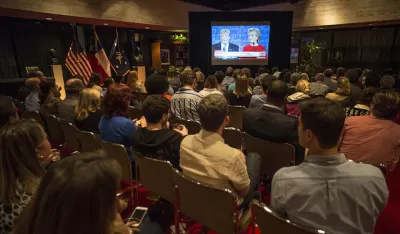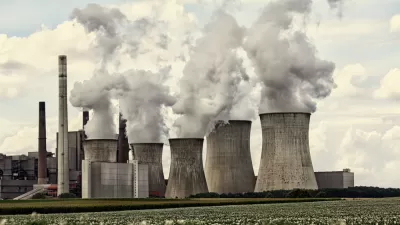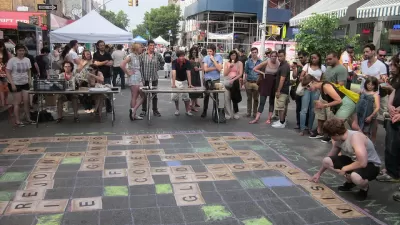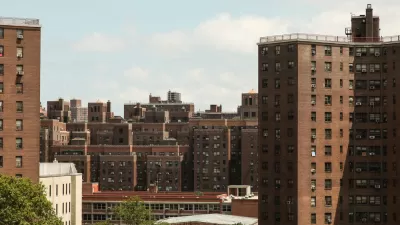Urbanists and their ilk might have been disappointed in the first presidential debate's lack of focused attention to affordable housing, infrastructure, and other issues of importance to cities.

Daniel McGraw provides a critique of the first debate between Hillary Clinton and Donald Trump, focusing on the "several exchanges that might resonate with Americans who spend their days thinking about and working on challenges facing U.S. cities."
McGraw starts with the moment that Clinton "accused Trump of cheering for the housing market collapse 10 years ago," too which Trump replied, in his own words, "That's called business."
According to McGraw's evaluation, "the fact that a presidential candidate sees housing as little more than a commodity without any other economic or cultural implications is very telling in many ways." The fact that many American's probably agree with Trump on this point, according to McGraw, is "why this race has been so hard to figure out."
Among the other subjects that were briefly considered, but without much detail, McGraw lists infrastructure (with Clinton mentioning clean energy and Trump discussing the shortcomings of La Guardia airport). Beyond that, the candidates discussed inequality and racism, but from the frame of policing practices, not affordable housing, environmental justice, or public health. While Clinton suggested criminal justice reform and asked Americans to consider their biases, Trump touted "law and order" and stop-and-frisk.
FULL STORY: Trump and Clinton Debate Over Housing Is Critical to U.S. Cities

Alabama: Trump Terminates Settlements for Black Communities Harmed By Raw Sewage
Trump deemed the landmark civil rights agreement “illegal DEI and environmental justice policy.”

Study: Maui’s Plan to Convert Vacation Rentals to Long-Term Housing Could Cause Nearly $1 Billion Economic Loss
The plan would reduce visitor accommodation by 25% resulting in 1,900 jobs lost.

Planetizen Federal Action Tracker
A weekly monitor of how Trump’s orders and actions are impacting planners and planning in America.

Wind Energy on the Rise Despite Federal Policy Reversal
The Trump administration is revoking federal support for renewable energy, but demand for new projects continues unabated.

Passengers Flock to Caltrain After Electrification
The new electric trains are running faster and more reliably, leading to strong ridership growth on the Bay Area rail system.

Texas Churches Rally Behind ‘Yes in God’s Back Yard’ Legislation
Religious leaders want the state to reduce zoning regulations to streamline leasing church-owned land to housing developers.
Urban Design for Planners 1: Software Tools
This six-course series explores essential urban design concepts using open source software and equips planners with the tools they need to participate fully in the urban design process.
Planning for Universal Design
Learn the tools for implementing Universal Design in planning regulations.
Caltrans
Smith Gee Studio
Institute for Housing and Urban Development Studies (IHS)
City of Grandview
Harvard GSD Executive Education
Toledo-Lucas County Plan Commissions
Salt Lake City
NYU Wagner Graduate School of Public Service





























